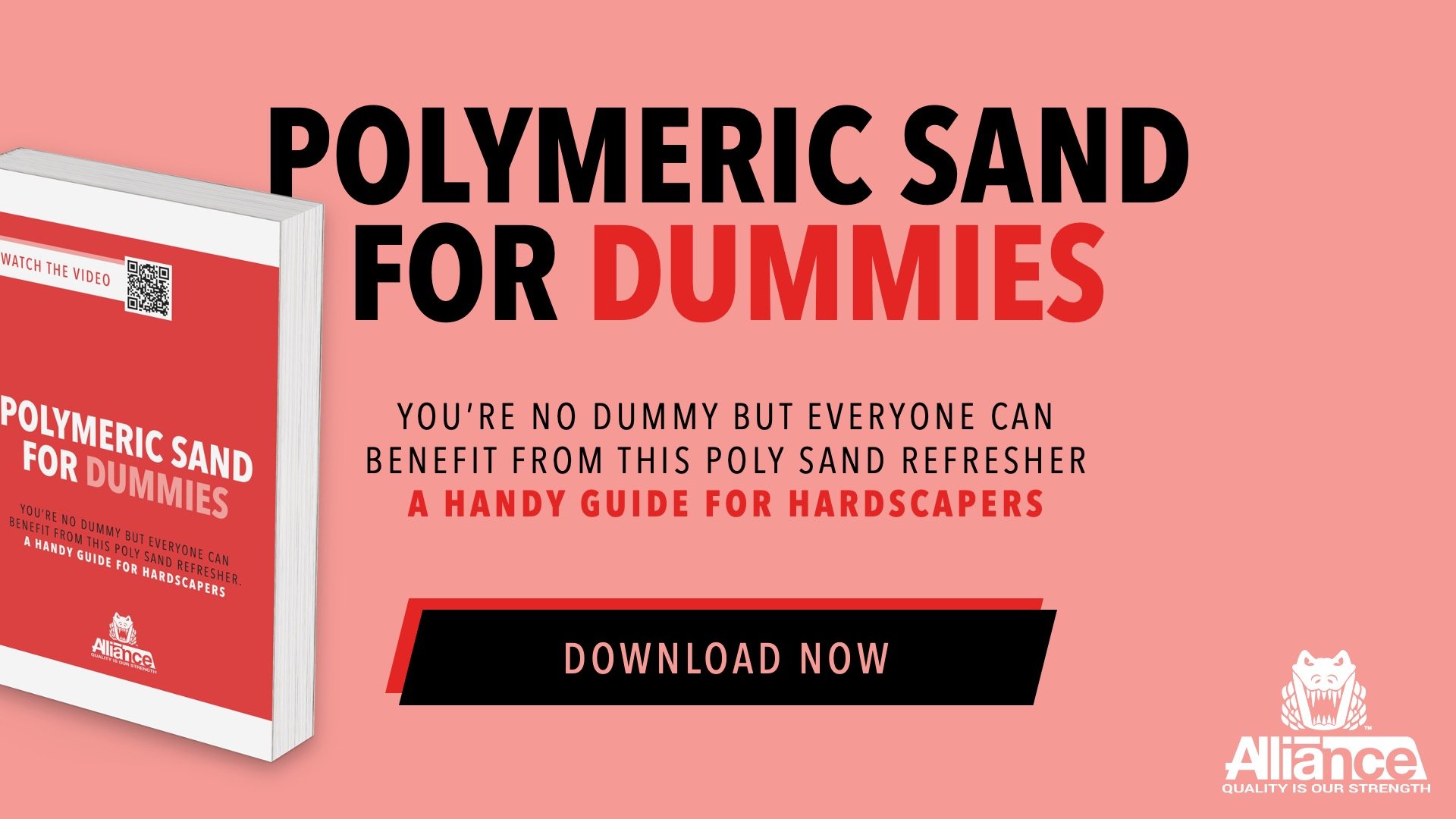PUTTING OUR POLYMERIC SAND TO THE TEST
When testing polymeric sand, our team of scientists toss around terms like ASTM C-144 gradation, tensile strength, and self-healing performance. In this blog post, we’ll break down the jargon, share insightful details on the rigorous testing we perform, and explain what it all means to you … the end-user.
As a company, we’re committed to producing the best performing polymeric sands for the hardscape industry ... period! Our approach to research and development is methodical and thorough. Polymeric sand testing begins with collecting samples and putting them through an aggressive series of laboratory and field tests to ensure things like ASTM C-144 gradation, tensile strength, self-healing performance, etc. ...
But what the heck does all of that really mean?
Whether you’re selling our product or installing it, having a general understanding of the testing we perform is a big plus. So we’re going to highlight each characteristic we test for and break it down in non-scientific terms.
ASTM C-144 Gradation
Ambiguous acronyms … don’t you just love them? Ok, so let’s start with what ASTM stands for: the American Society for Testing and Materials. The group was founded in 1898 to address the frequent rail breaks affecting the railroad industry. Eventually they developed a standard for the steel used to fabricate rails. Since then the ASTM has evolved and expanded quite a bit. Utilizing the expertise of over 30,000 members today, they strive to create consensus and improve performance in 3 categories: 1. Manufacturing and materials, 2. Products and processes, and 3. Systems and services.
There are currently over 12,000 ASTM standards being used globally. And when it comes to polymeric sand, the one we’re concerned with is ASTM C-144, the Standard Specification for Aggregate for Masonry Mortar. This specification states:
- Aggregate for use in masonry mortar must consist of natural or manufactured sand
- Aggregate must be graded within prescribed limits (meaning there is criteria for the mix of particle sizes used within the aggregate)
- Samples (which meet the prescribed grading limits) must be checked for deleterious or harmful substances
- A density test must be performed
- Air content must be calculated
We test to ensure our polymeric sand meets all specifications set forth in ASTM C-144 as this is the ICPI recommendation for an ideal jointing material.
Tensile Strength
Tensile strength refers to the capacity of a material to withstand being elongated or stretched out. For example, a cotton square has very low tensile strength while a metal chain has very high tensile strength.
One of the key benefits of polymeric sand is that it’s flexible and can withstand natural ground movement. Alliance Gator polymeric sands are tested for tensile strength and engineered to hold up against Mother Nature without breaking or crumbling apart.
Compressive Strength
A material’s ability to withstand pressure from the weight of a load is referred to as compressive strength. A soft cushion has very low compressive strength whereas a granite slab has very high compressive strength.
Since paver joints are subject to vehicular and pedestrian traffic, the sand used to fill them must be able to endure the weight and force of various loads. Once Alliance Gator polymeric sand sets, it becomes very firm and locks between paver joints while still retaining flexibility and providing a long lasting, durable jointing material. It can be used for a variety of applications including pool decks, patios, footpaths, driveways, parking spaces, and pavements.
Abrasion Resistance
Abrasion resistance is the ability of a substance to resist rubbing, scraping, or erosion, which tends to progressively remove material from its surface.
When properly installed, our polymeric sands will showcase their incredible abrasion resistance and impressively stand up against the test of time. That’s why we’re confident in backing these products with a limited 15-year warranty.
Erosion or Washout Test
Erosion is the process of a material breaking down due to wind, water, or other natural agents. (Our blog post A Surefire Plan To Protect Against Paver Sand Erosion delves into the specifics of safeguarding your paver project from erosion.)
Out of all the tests we put our polymeric sands through, we’re most proud of the erosion test results. During this process, we stack our product up against the competition. Different brands of polymeric sand are activated in Petri dishes and allowed to set up for a full 24 hours. We then simulate a one-hour rain storm. The result: After one hour, all leading competitors either wash out or swell and fail. The Alliance Gator sands remain intact!
To see this test for yourself, click here!
Set-up Time
Alliance Gator polymeric sand is laboratory tested to ensure guaranteed set-up at one hour, assuming installation is performed at 32 degrees or above.
Get expert installation tips in this blog post: 10-Step Polymeric Sand Installation Guide
Self-healing Performance
Polymeric sand transitions from relatively hard when dry to soft when wet … another words, it’s designed to be self-healing. The performance of Alliance Gator polymeric sand is tested under a wide variety of simulated conditions to validate it will maintain its self-healing characteristic.
We’ve given our #TotalCommitment to offering the hardscape world top quality products … and testing is an essential piece of this.

